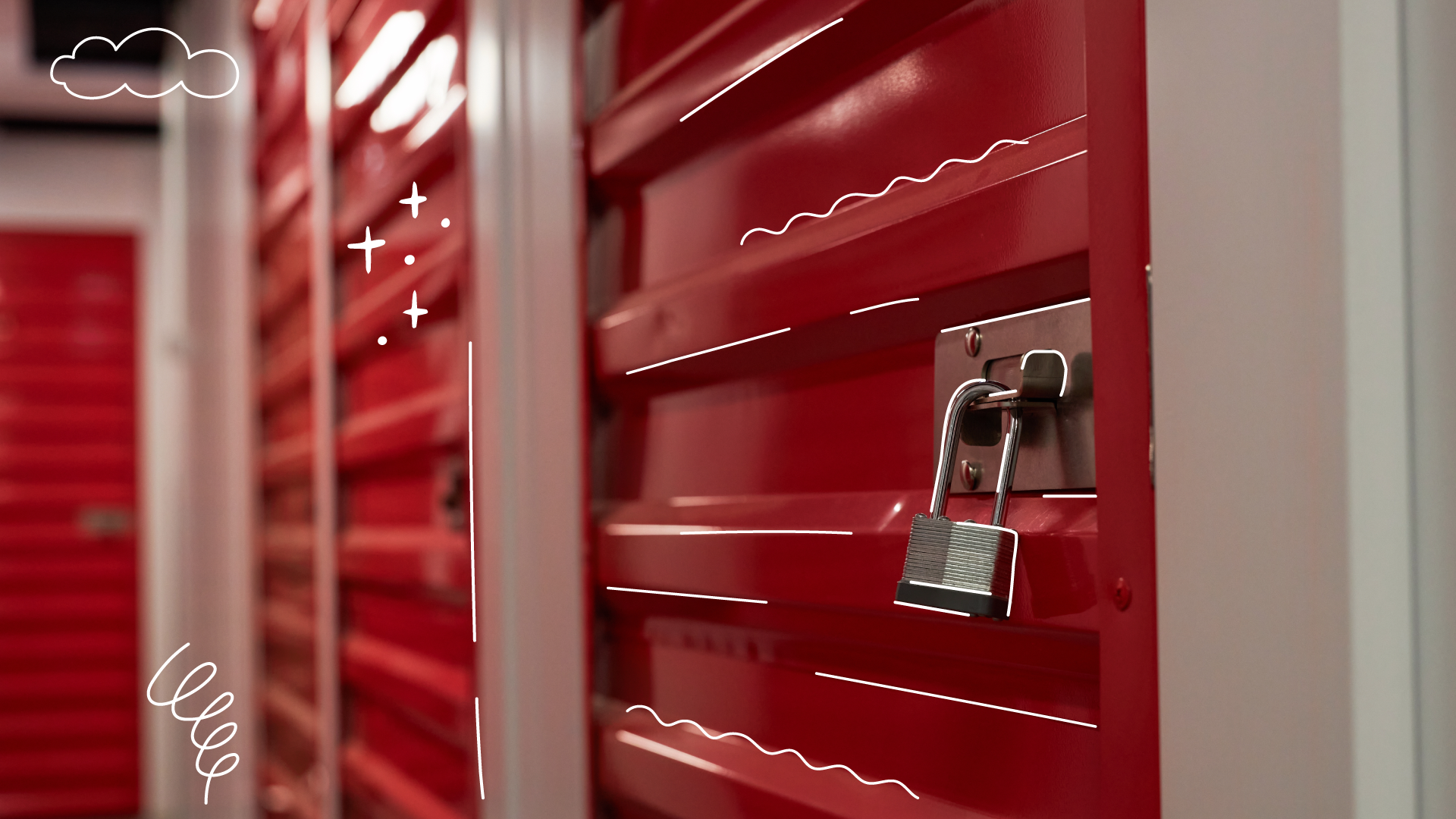Article takeaways
- Renting a climate-controlled storage unit is an inexpensive and useful way to protect a small vehicle from weather damage or theft.
- Motorcycles, golf carts, and ATVs should all be cleaned and have their batteries disconnected before storage.
- Find a storage facility with robust security and make sure your insurance policy covers your small vehicle while you’re storing it.
Golf carts, ATVs, and motorcycles provide plenty of fun and mobility without taking up too much space in your garage, but even your smallest vehicles won’t fit if your garage space is limited. You may be tempted to store them outside, but you run the risk of theft and weather damage if you do. Luckily, there are plenty of self-storage solutions to help you keep your small vehicles in the best shape on a budget.
In this article, we’ll go over steps to prepare your motorcycle, ATV, or golf cart for short-term or long-term storage. We’ll also take a look at what storage unit sizes are best for your small vehicle and some features to look out for when comparing units and prices.
What storage options and unit sizes should I consider for my small vehicles?
Let’s take a quick look at the pros and cons of various types of small vehicle storage.
| Type | Description | Pros | Cons |
|---|---|---|---|
| At-home garage storage | If you have space and can properly protect your vehicle, storing it in your garage is a cost-effective solution. | Essentially free Easy to access Storage space is built into your home |
Prone to weather damage Not very secure Can contribute to garage clutter |
| Outdoor vehicle storage | If you’re not as concerned with security or weather damage, you can rent an outdoor parking space at a vehicle storage facility. | Inexpensive to rent Better security than garage storage |
Prone to weather damage Covered storage costs extra |
| Indoor vehicle storage | From secure parking garages to individual storage units, there are plenty of indoor storage options worth investing in to prolong your vehicle’s life during the off-season. | Best security Complete protection from weather Climate control is available |
Most expensive (but not that much more expensive than outdoor storage) |
If you’re looking to rent an individual storage unit with climate control, you’ll be investing to help keep your small vehicle in the best possible shape. However, different unit sizes will fit different vehicle sizes:
- 5’ x 5’: These units are too small for most vehicles, as you’ll need some extra space to move around inside.
- 5’ x 10’: You can store a smaller motorcycle, dirt bike, or motor scooter in these units.
- 10’ x 10’: This unit size will fit most motorcycles, ATVs, and golf carts.
- 10’ x 15’: This unit size will give you a little extra room alongside your vehicle to store accessories and tools.
Remember, the best practice for storing anything in a self-storage unit is to organize it as best you can. While your vehicle may be the centerpiece, set out zones to store accessories, tools, and other equipment, and get some inexpensive shelving to make the most of the vertical space available.
What should I consider when storing a motorcycle or dirt bike?
Motorcycles and dirt bikes need a few universal steps before you store them for any length of time. Disconnect the battery and connect it to a trickle charger to help maintain it, fill the gas tank and add some fuel stabilizer, and check the tire pressure and inflate the tires if it’s too low. When in storage, position your motorcycle upright, using blocks to keep it from rolling, and put a snug-fitting cover on it to prevent it from gathering too much dust.
Heavier-duty bikes, such as touring bikes, may require some extra cleaning every couple of weeks or months to prevent their many metal parts from rust or stains. You won’t have to clean your bike nearly as often in a climate-controlled storage unit, however, as it’ll be better protected from moisture and dust.
What should I consider when storing an ATV?

All-terrain vehicles can take up a bit more space than motorcycles, so plan for this when you’re scoping out a unit or alternative storage space. Properly winterize your ATV before storing it by stabilizing the fuel, changing the oil, disconnecting the battery, cleaning the vehicle, and putting on a good-fitting cover. Make sure you clean your vehicle after each ride as well to keep dirt and grime from sticking around in storage.
What should I consider when storing a golf cart?
Storing a golf cart requires some different steps than ATVs and motorcycles, as they’re often fully electric and depend on a functioning battery to move. If you’re getting ready to put a golf cart in storage for a while, invest in a tender or trickle charger to keep the battery from draining and seek out a unit with in-unit outlets. You should also wash and dry the vehicle and cover it, just as you would with other small vehicles.
What security and insurance concerns should I have when storing a small vehicle?
Self-storage facilities provide the most secure environment for your small vehicle to stay in, and some facilities have more security features than others. Seek out a storage facility with gated access to renters only, on-site security staff and cameras to help catch thieves before they can make a move, and good lighting so no one can intrude under cover of darkness. For more security, you can put a GPS tracker on your vehicle or invest in your own extra locks or alarm systems.
In the event something happens to your vehicle and you need reimbursement, you’ll need an insurance policy that covers it. Take photos, note your serial numbers, and write down detailed reports of your vehicle’s condition before you store it. The location you store your vehicle in can affect insurance coverage, so verify any additional costs with your provider to make sure you’re fully insured for any rare storage mishaps.
How do I find the right storage unit for my small vehicle?
Putting your motorcycle, ATV, or golf cart into a climate-controlled storage unit is the best way to protect it from damage, theft, or the unwanted effects of weather. It’s an inexpensive investment that will save you even more money in the long run and protect your peace of mind as you protect your vehicle.
If you’re ready to start looking for storage units that meet your needs, you’re in the right place! Use SelfStorage.com’s built-in search tool to compare unit rental prices in your area and filter facilities by the features you need most.









